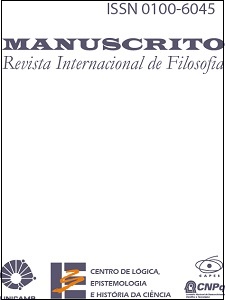Resumo
In letters that Husserl and Frege exchanged during late 1906 and early 1907, when it is thought that Frege abandoned his attempts to solve Russell's paradox, Husserl expressed his views about the "paradox". Studied here are three deep-rooted differences between their approaches to pure logic present beneath the surface in these letters. These diferences concern Husserl's ideas about avoiding paradoxical consequences by shunning three potentially paradox producing practices. Specifically, he saw the need for: 1) correctly drawing the line between meaning analyses and logical analyses; 2) an epistemology of pure logic; 3) a subtler understanding of the semantics of statements than Frege proposed. This study is part of a project to lend insight into the questions that Russell's paradox raises for logic and epistemology once signaled by Gödel, an admirer of Husserl's work.

